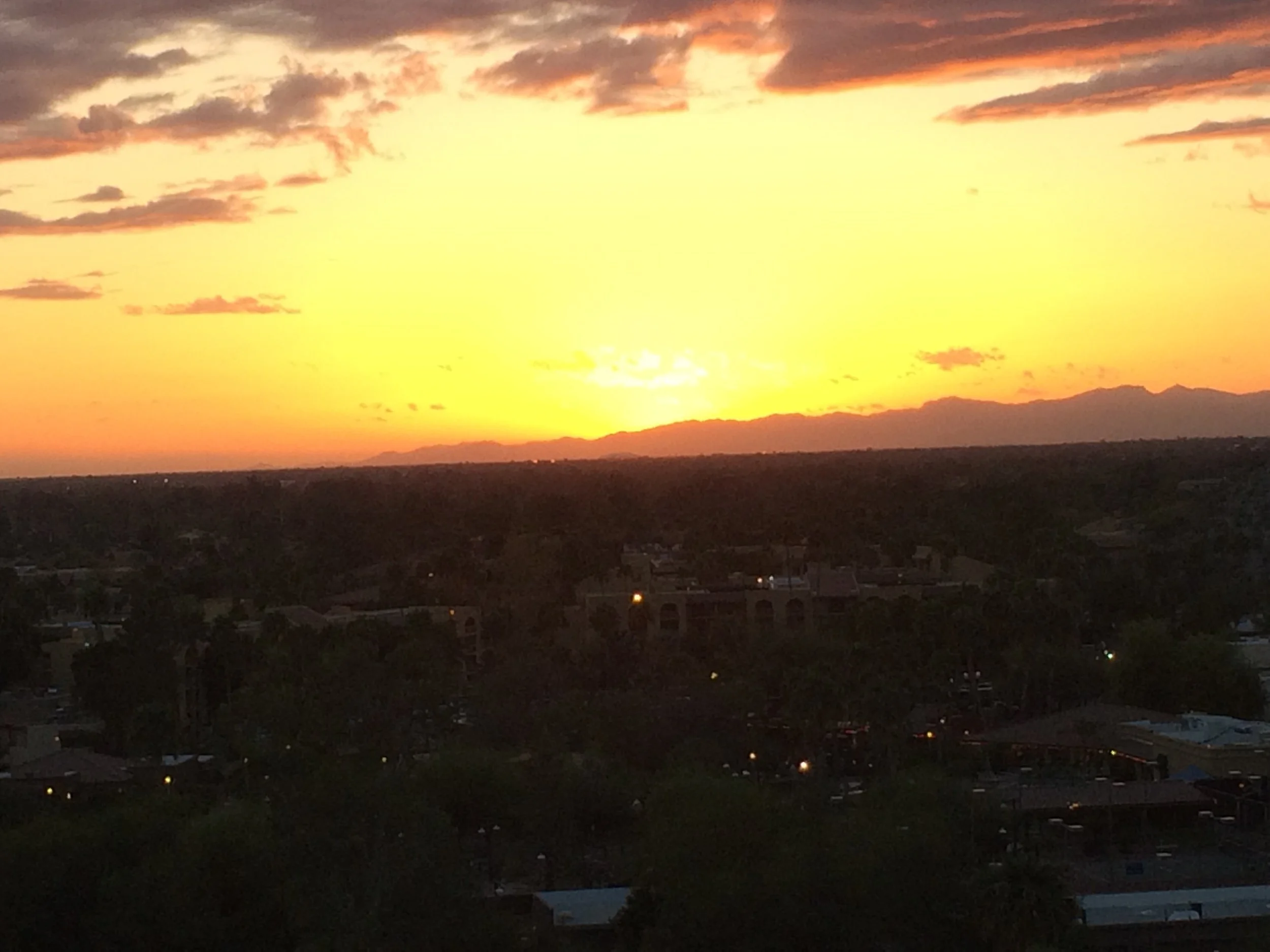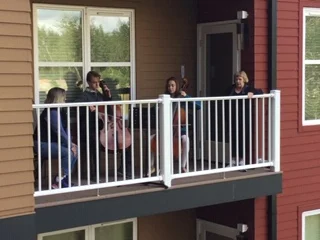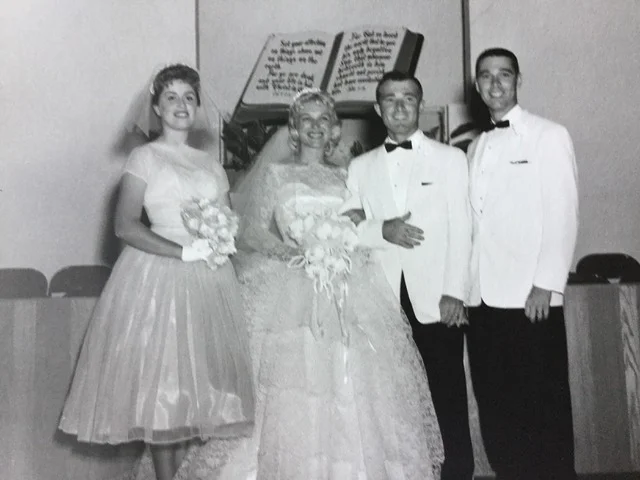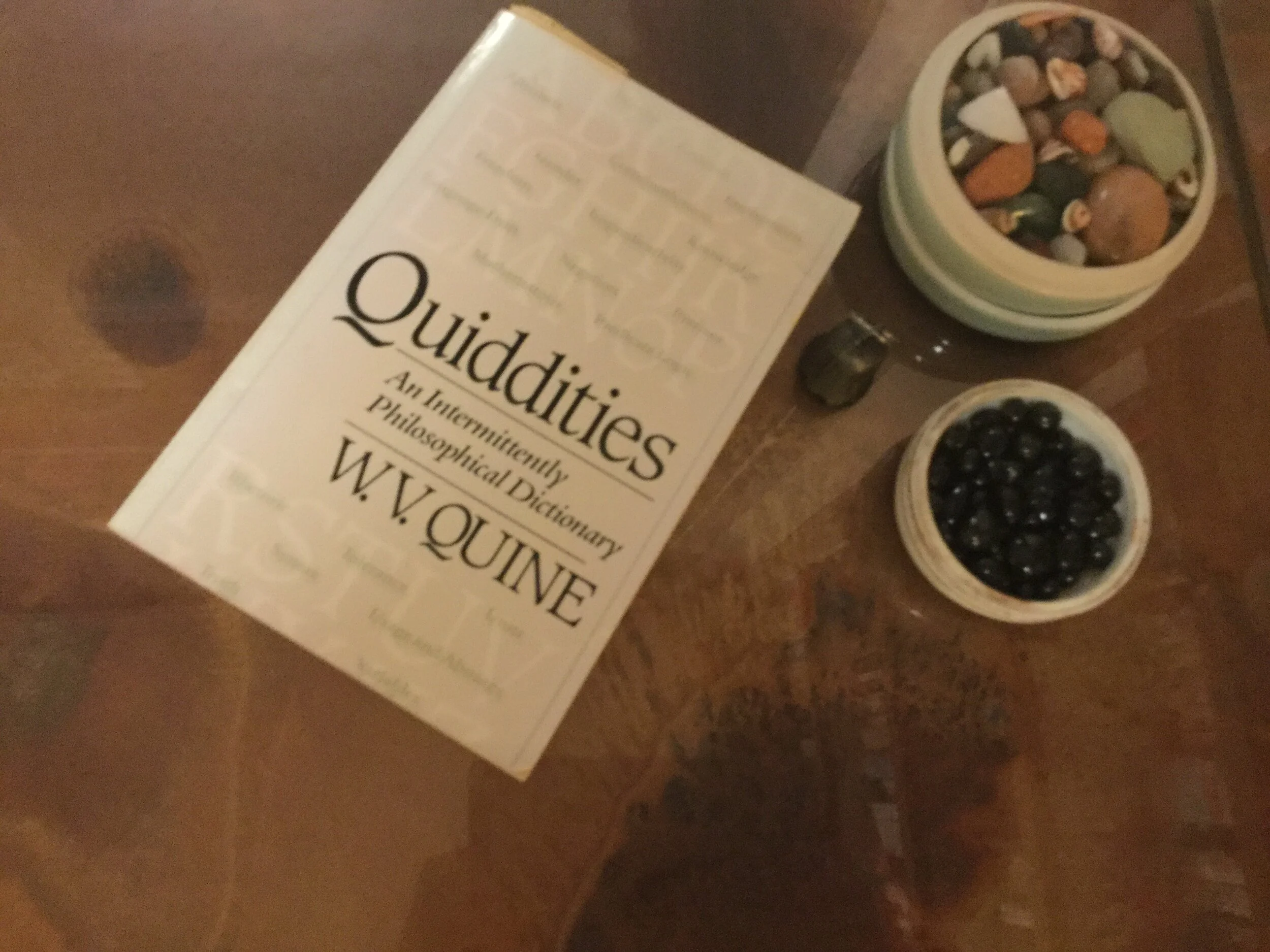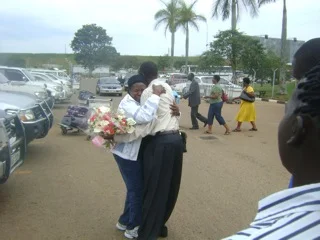PACHELBEL & MEMORY
Note: If you read the recent posts: “Cold Celebration” and “Part 2, Cold Celebration,” you will instantly know the connection with this, the third (and final) blog posting that emerges from a miserable and marvelous 61st Wedding Anniversary—bad colds but a beautiful cello concert. So, I recommend, the reading of those postings before you move on the thought shared now. Not insisting, merely recommending.
June 11, 2019
Settle in. I have one more thing to share because I heard cellos, because hearing cellos have both blessed and broken my heart. In the craziest, unplanned, and most wonderful way, over the years I have been privileged to officiate some fun stuff: weddings, baptisms, dedications, ordinations, you know, stuff that deserved a tic of solemnity as well as serious fun.
As well, long before I added, “Ordained” to my never-needed resume, I was called to a task of walking with others on the path to death. I didn’t plan it. I surely wouldn’t have chosen it, but in her mid-40s, my dearest friend, Linda, was set on that path. We decided to walk it together. We learned about death together. Then, in 1990, I delivered her eulogy.
I was planting Linda’s favorite Black-eyed Susans in my California yard—you know, when the mind doesn’t work but your hands need to, when I got a call from our close friend, Cal, an Irishman of dark and lighthearted moods.
“Barb,” he said. “I know you just made this walk with Linda, but I’m wondering, will you walk it now with me? I’ve been told I have a matter of months. Will you. . .?”
One year later, I officiated services honoring Cal. And, oh, six years later, that of Cal’s weeks-old granddaughter, and twelve years after that, services acknowledging the inexplicable death of Cal’s beautiful and brilliant son, Cris.
Should anyone wonder why I named a blog category Thoughts Along the Way to Dying, it may have to do with my walking difficult paths; officiating seventeen services that commemorate deaths; five of those among my dearest friends. One of those is the subject of this posting—Karen, an indescribably fabulous, 50-year-old; a way, way, way too wonderful woman. It was totally wrong for Karen to die said those of us who loved her.
Just four days ago this June 2019, I sat bath-robed; sneezing, cold-coughing and tear-drenched, but captivated by a live cello duet playing on my behalf. A gift from my husband for our 61st anniversary. I was only a slightly blubbering mess until the two cellists pulled bows into Pachelbel’s Canon in D Major. Then, I lost it. Completely. I lost it because of my friend, Karen.
“Oh, god . . .” I buried my head. I heard from two cellos what you can hear in this free recording. Listen. Then, as you do, read on for the memory this music burrowed into my heart. I wrote of my friend and Pachelbel, two days before Karen’s death, July 25, 1994.
Canon in D Major Kevin MacLeod (incompetech.com)Licensed under Creative Commons: By Attribution 3.0 License. http://creativecommons.org/licenses/by/3.0/
. . .
Monday, July 25, 1994 (Karen died two days later, July 27, 1994) In my journal, I wrote:
Church yesterday—University Presbyterian Church, Seattle
A string quartet. Pachelbel’s Canon in D Major
Pachelbel’s Canon, said music critic, Jim Svejda, was “a third-rate baroque nonentity who occasionally rose to the level of the second-rate in some of his organ music . . . it unquestionably qualifies as a large bore.”
But I wrote that this third-rate baroque music thrilled my heart yesterday and gave me a gift of imagery desperately needed by my un-rated soul.
I listened. I looked at the players: two violins, viola, and cello. I listened, as I usually do, with my eyes shut, my emotions engaged, music flowing through whatever filters sound for me; it seeps into every fiber of my being.
This is what I heard:
The first violin was Karen. The melody line belongs to her. It is gentle but persistent. It sets the pace. It is mournful but powerful. It never attempts frills. It is sad but not morose. It finishes much too quickly, but it is not alone.
Beside it, moving quietly, securely, is the second violin. Harmonious, similar, but not confused with the lead instrument. The second violin is Karen’s support system—family, friends, and fellow Christians. This instrument feels the strains of the taxing melody but knows itself not to be it. This line of music is close, as are her supporters. This line sometimes plays the same notes, but it cannot stay there. It falls back, follows the lead, girds up and supports the melody.
The Cello? Ah, the cello is Aslan! The Lion of Narnia with a “voice to make the earth shake.” There is not a moment’s question. From the first of my hearing the cello’s long, sustained notes, I see the lion walking just off the side of Karen’s path. The Lion who, when Shasta (The Horse and His Boy) asked, “Who are you?” replied, “Myself, Myself, Myself.”
Aslan is swift of foot, but sure. He can strike, he can spare, but his walk is steady, his breath warm on the one who wonders, “Who are you? Are you a ghost?” on the one who hears, “Tell me your sorrows.”
The cello, the Lion, never panics, never apologizes for pain, never hurries through a discovery of grace in the midst of horrible pain. The cello, the lion, are majestic, divine. He is aware of every note written, he sustains both the first and second violins. He reverberates through every beat. Nothing works if his undergirding fails. And, it never fails.
What then, of the viola? What is the plucking that I hear? It never stops. It has energy because it offers movement of music through split-second plucking. One true sound at a time, one, only one, even though each sound falls rapidly onto the space left by the one preceding it.
I didn’t need to know what the viola represents, I thought. I am not, after all, writing a story. I do not need more than the beautiful representation already before me, I reasoned, eyes closed, head down, mind filled with sound. Only, as I tried to free myself from finishing the melodic parable, the answer arrived.
The viola is Time. It is plucked one beat at a . . ., at a what? At a time. For each of us. It never fails to measure the events of life. It is the one thing we all hear in common. Time. This moment. What came before is truly gone. There is no pedal to sustain it and that which will come next is not yet here. Time is plucked one note at a time. It is either heard or not, it is enjoyed or not, it is felt or not, it is received well or ill, it is only time. It is, however, never more than now. The viola is faithful to measure the movement of the first violin. When it stops, all the melodies of earthy instruments stop. What it allowed has finished.
The music stops. the magnificent, third-rate music stops, and my spirit slowly lifts from under its power. Thank you, Pachelbel. Thank you, dear Lion of Life, so sure of Yourself that I can realize you in imagery. Thank you, Karen Kragh, for drawing my heart into your joy and into your pain; thank you for the gift of shared time.

